We’re here with another list of DIY recipes, but this time it’s food for your skin! No need to splurge on pre-made face masks at the store when you can make them at home with natural ingredients that you probably already have in your kitchen. Not only are these ingredients nutritious, they also do wonders for the skin (all ingredients are linked for your convenience).
It’s time for a self-care night, baby! So grab your wine, scroll down, and let’s get messy with these 7 different face masks for every skin type:

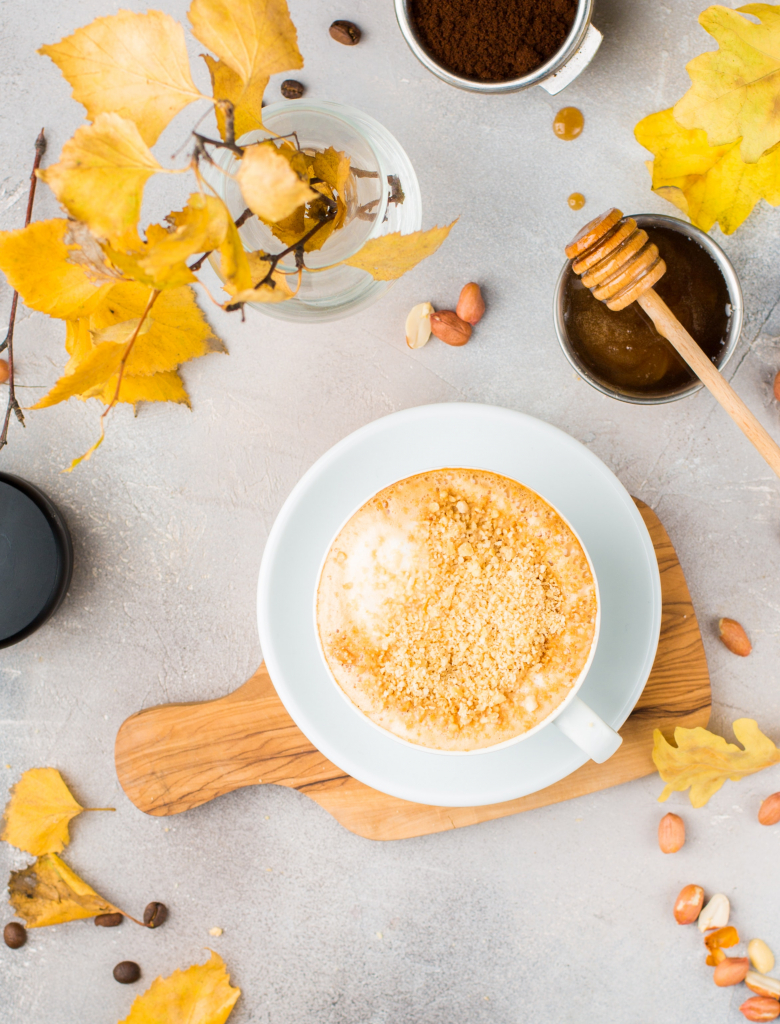
Face Mask for Eczema
It’s gentle enough to use anywhere on your body, so feel free to slather it on those dry spots on your legs and arms, too. Here’s what you’ll need:
The hero ingredient in this simple DIY is oatmeal, which has both antioxidant and anti-inflammatory properties that help calm dry skin and remove dead skin cells. And when it’s paired with antibacterial honey (and a little H2O for consistency), it’s a true skin-soothing treat. Crush up all the ingredients in a bowl, smooth a thin layer over clean skin, and leave it on for about 10 minutes to get the full calming effects.
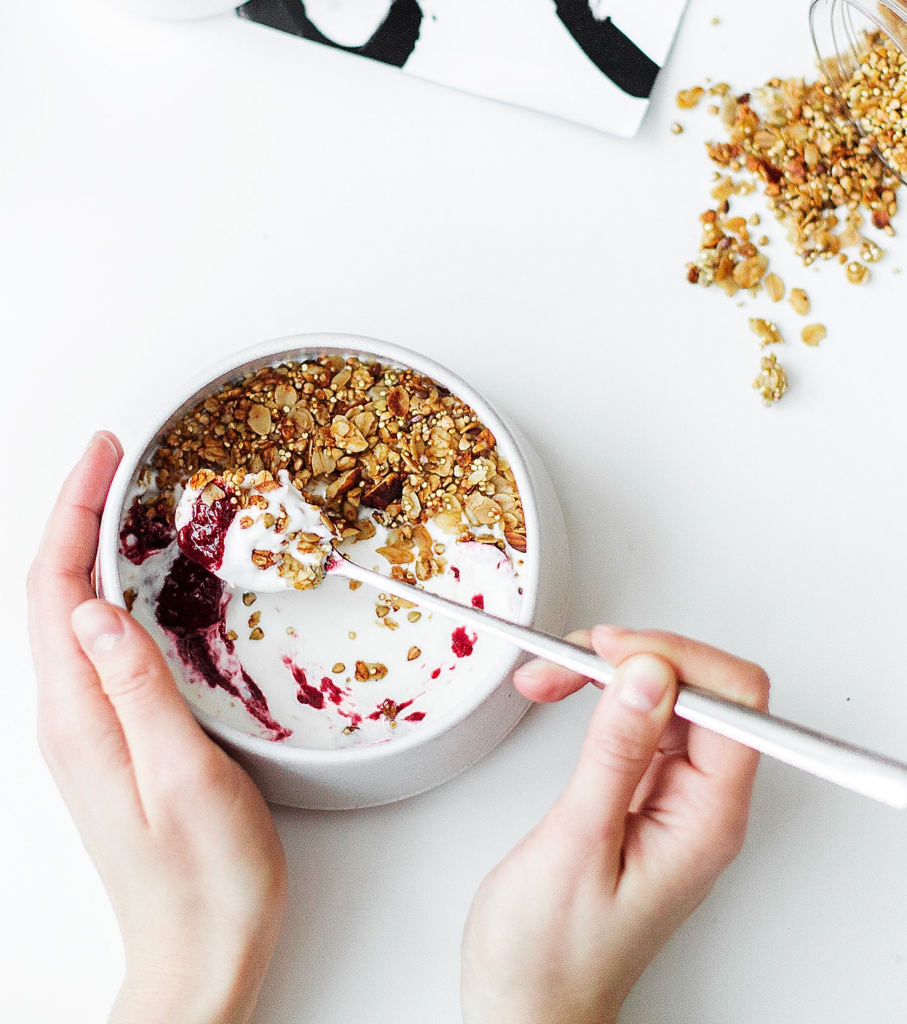
Face Mask For Dry Skin
- 1 tablespoon Greek yogurt
- 1 teaspoon oatmeal
- 1 teaspoon honey
Greek yogurt is loaded with things like lactic acid (which helps soften your skin) and probiotics (which help soothe inflammation). Mix it in a bowl with oatmeal and honey, leave it on clean skin for 10 to 15 minutes, and rinse it off with warm water. Trust me: Your skin will feel so soft!
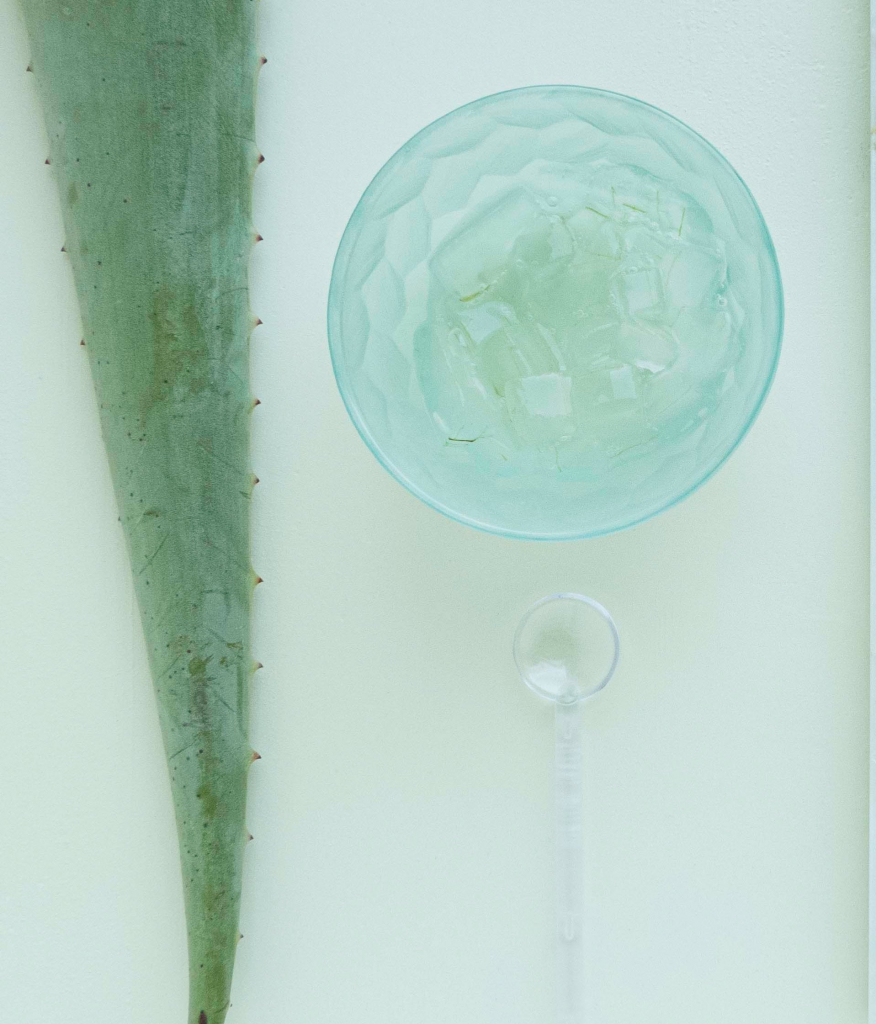
Face Mask For Acne
- 1 tablespoon aloe vera gel
- a drop of tea tree oil
On its own, tea tree oil — which is a natural antibacterial and acne-fighter — is a little too harsh to slather over your skin (even as a spot treatment, it can literally burn your skin if it isn’t diluted with enough water). But this mask uses hydrating, calming aloe to negate the potentially irritating effects while calming irritated, broken-out skin. Keep it on clean, dry skin for 10 minutes, then rinse it off, making sure to moisturize afterward.
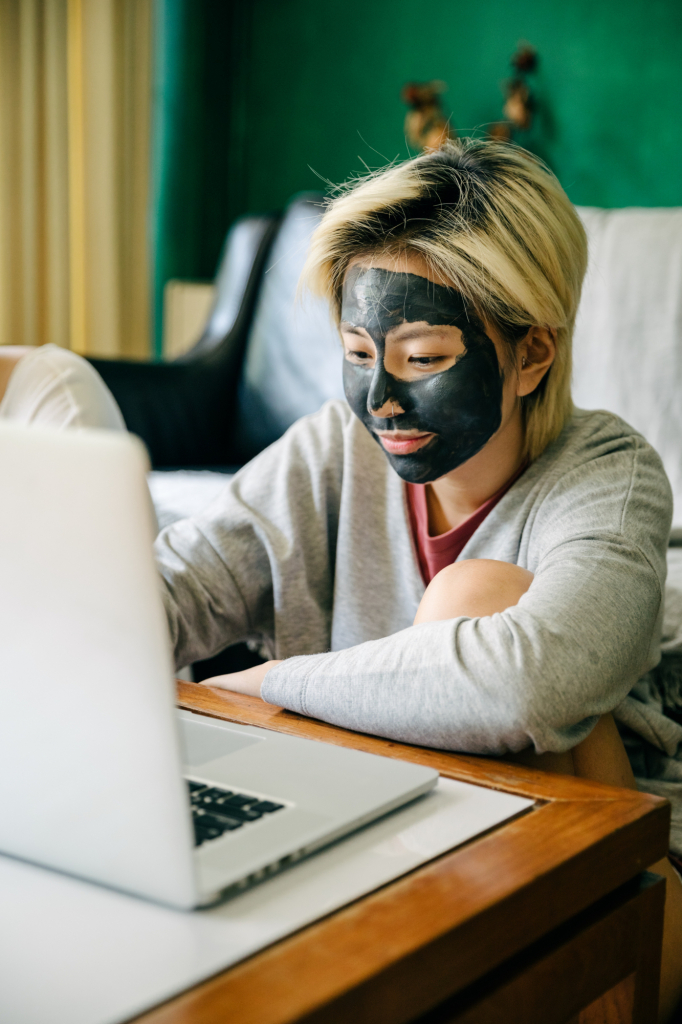
Face Mask For Blackheads
- 2 teaspoons unflavored gelatin
- 2 tablespoons water
- 6 activated charcoal capsules (broken open)
Mix all the ingredients together, then dab a relatively thick layer over your nose, basically making your own DIY pore strip (don’t worry — this one’s significantly more gentle. As an FYI, pore strips can irritate your skin barrier and actually cause more breakouts and blackheads over time, so skip them and try this instead).
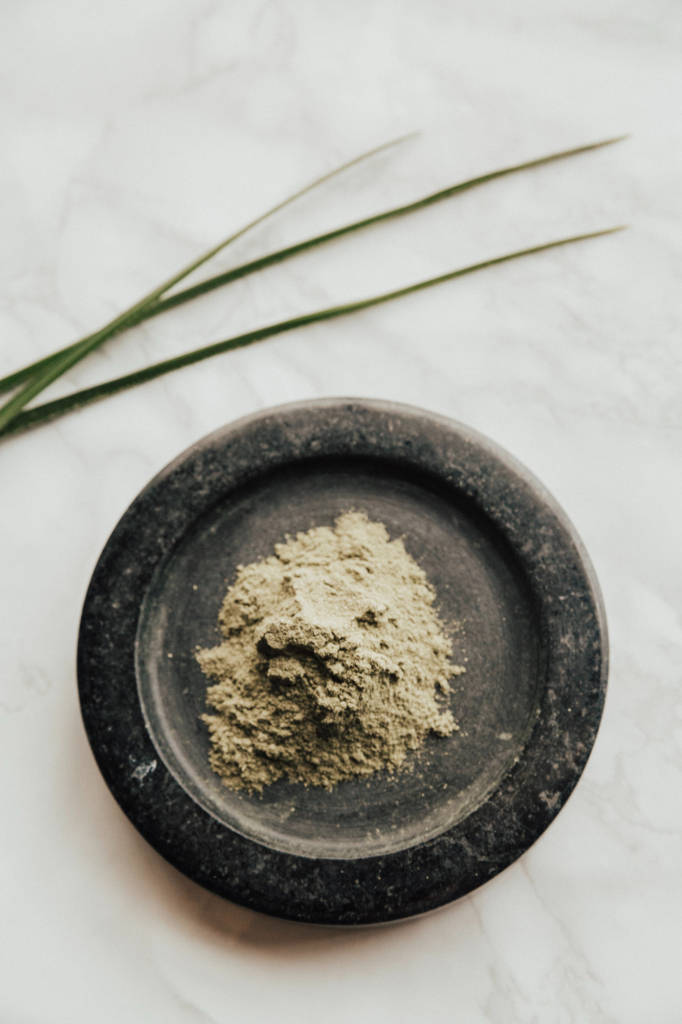
Face Mask For Inflammation
- 2 tablespoons fresh aloe (or, in a pinch, aloe vera gel)
- 1 teaspoon matcha green tea powder
Aloe vera is naturally soothing and lightly moisturizing (it’s honestly great for itching and inflamed skin), while matcha powder is believed to have redness-reducing and anti-inflammatory properties. Blend ’em up, slather the mixture on your face (you can stick the mix in the freezer first for 10 minutes for extra cooling powers), leave on for 15 minutes, then rinse off and moisturize.
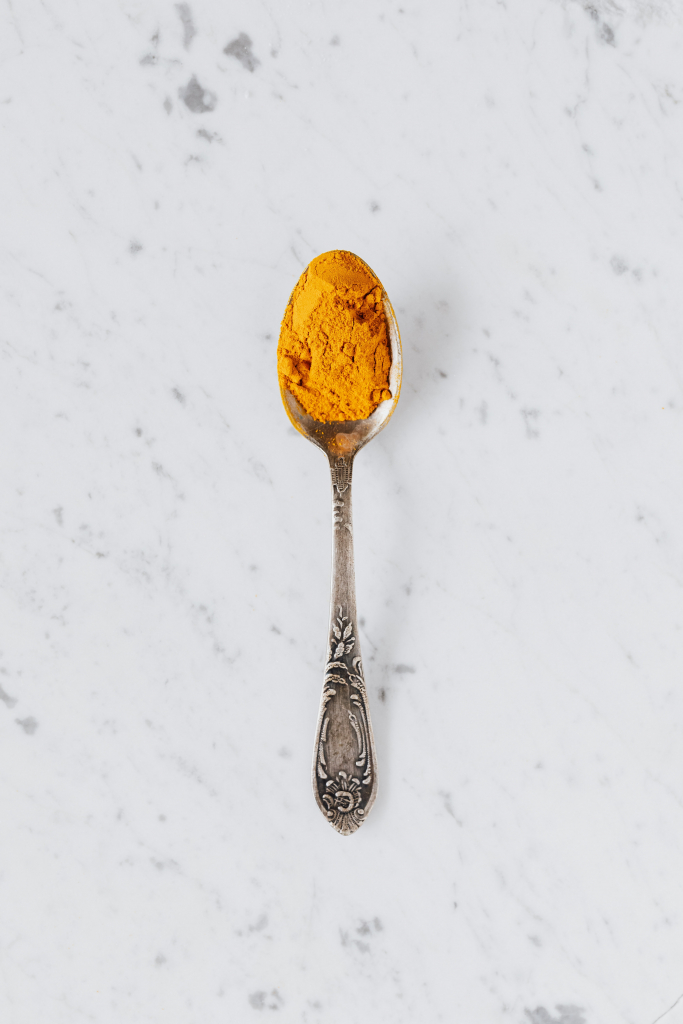
Face Mask For Dark Spots And Acne Scars
- 1 teaspoon turmeric powder
- 2 tablespoons plain yogurt (or olive oil, or your favorite face oil)
I know from experience that applying straight turmeric without a “buffer” can temporarily stain your skin bright yellow. So add a bit of yogurt or oil to create a barrier and prevent any jaundice-looking skin, keep the mixture on your skin for 10 to 15 minutes, then rinse off, followed by your usual face wash.
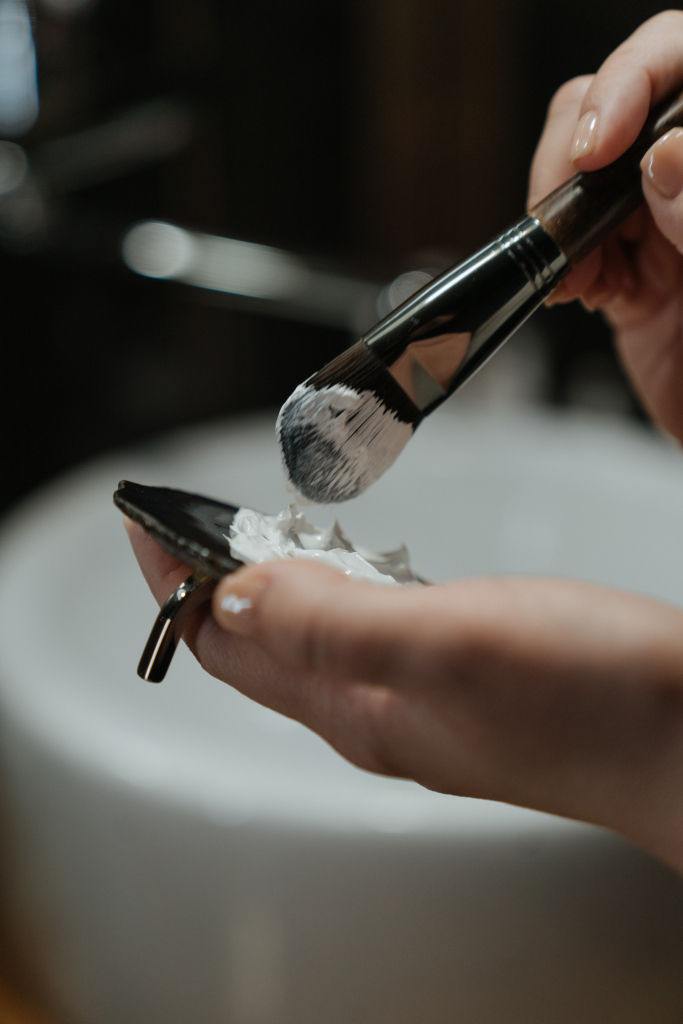
Face Mask For Oily Skin
- 1 egg white
- 2 tablespoons fresh aloe (or, in a pinch, aloe vera gel)
Egg whites actually contain a natural antibacterial that can help prevent clogged pores while absorbing excess oil. (No, they will not be as effective as clinically tested and formulated acne treatments, but they also can’t hurt, unless you’re allergic to eggs.)
And aloe is great remedy for calming and soothing your skin. So if your skin is overproducing oil as a result of irritation, this two-in-one face mask can help calm it down. Mix the ingredients, spoon them onto your face, let it sit for 10 minutes, then rinse them off.

Share your skin results with us after trying out these DIY face masks! We’d love to see which ones you loved!
Enjoyed This Article? Check Out:

